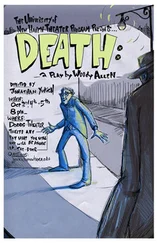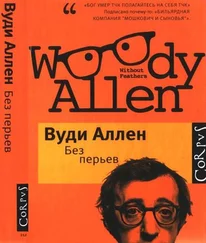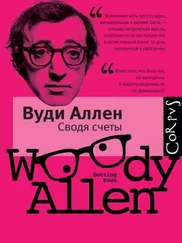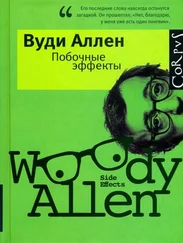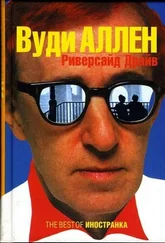We lived in Long Beach for a few seasons, and now I come to the point I digressed for. In school, I was ten years old and I wrote a composition in which I referenced Freud, the id, and the libido, not knowing what I was talking about but having some odd instinct for knowing how to parlay a jot of knowledge, in this case just the words, into a comic bit that works and makes the reader or audience think I know much more than I do. The teachers were greatly amused by what I wrote. They passed my writing around, whispering to each other and pointing at me. This odd flair has stayed with me my whole life, and knowing how to use references has grown into a useful tool. End of digression, and if I haven’t lost you totally I’ll get back to the main theme of the book: man’s search for god in a pointless, violent universe.
And so, I was closing in on the final term in Midwood High getting bad grades and not helped by the romantic notion that a life of crime might be the most fun of all my options. Then one fateful afternoon, after a particularly good volley of gags directed at the screen during a movie, someone said, “You should write some of your gags down. They’re funny.” A casual remark, but through the noise of the Flatbush streets, I heard it. I had the stolen typewriter Dad had fenced, and so I went home and sat down at it. I made up a few jokes and banged them out on the Underwood. On a roll, luck always being my portion, my mother, a serious woman with a heart of liquid nitrogen, paused in her daily ritual of slapping my face on spec and said surprisingly, “Why don’t you show your wise cracks to Phil Wasserman [not the other Phil Wasserman—the original, the press agent] and get his opinion? He runs always with those Broadway wags.”
I followed her advice. Phil was impressed and said, “You should mail them in to some of the newspaper columnists—Walter Winchell, Earl Wilson, Hy Gardner of the Herald Tribune . They’re good gags.” Here I have to warn the reader the one-liners were not the equal of Voltaire or La Rochefoucauld. They were mother-in-law jokes, parking space jokes, income tax jokes, maybe an occasional topical one. Example (and don’t shoot me, I was sixteen): “There was the gambler’s kid who went to school in Vegas. He wouldn’t take his test marks back—he let ’em ride on the next test.” So I mail a few of these Akoya pearls in to various Broadway columnists and I hear nothing. Life goes on and under pressure, with bamboo splints pushed under my fingernails by my parents, I toy with the notion of pharmacy. My date with Janet S., a to-die-for girl in my class with the face of a Raphael Madonna and hair and wardrobe by Jules Feiffer, ends in disaster as I take her to a jazz concert and it turns out she hates jazz. Not to mention she’s got a crush on Sheldon Lipman, who wanted to be an anthropologist, which she finds so “breathtakingly fascinating.” Much as I try and sell her on the glamour of sharing life with a mortar-and-pestle jockey, she can’t see her future with me, and I’m heartbroken yet again. I come home from school, practice my horn, sitting in with Johnny Dodds on my twelve-dollar Victrola.
I go hit baseballs and moon over Ellen H., who is also so beautiful that I lapse into Urdu every time she talks to me but she’s going steady with Myron Sefransky, budding journalist and all-’round mensch. She can’t stop raving about having been taken to the Village to see Theodore, who was a flamboyant storyteller on stage, of tales by Bierce and Lovecraft, and the new idol of the black-clothes, silver-earring set. Brother Theodore, as he billed himself, had dramatic flair and held audiences spellbound. Years later I cast him in my first hapless play Don’t Drink the Water , but David Merrick had to fire him because he had no craft and could not hold a performance from one night to the next. I played chess with him during rehearsals, and he kept me in thrall with horror stories, too. These stories were not H. P. Lovecraft or Ambrose Bierce, like in his one-man show, but about the Nazis in Europe bursting into his house and simply throwing his relatives out the windows to their deaths.
So I’m home, daydreaming of Ellen and her perfect round, no lipstick face and her leather shoulder bag holding a red paperback by Par Lagerkvist of The Dwarf and cursing a nonexistent god for the fact that when I asked her to go out with me, she lamped me like I was Quasimodo and gave me the full Fuller. That same night, crushed with rejection and before I sacked out, I got a call from a friend who said, “Hey, you’re in Nick Kenny’s column.”
Nick Kenny was a sweet columnist for the Daily Mirror , a sparse rag that would have gone out of business were it not for the fact it housed Walter Winchell’s column. Unlike Walter Winchell (you all saw Sweet Smell of Success ), Kenny was a benign softie who’d write little poems in his column; one ended, “and dog spelled backwards is God.” So you get the idea. Kenny printed some gags each day, and bolting from my bed to race to Avenue J and pick up the Daily Mirror I saw my name in print for the first time. Allan Konigsberg says—and then some stupid gag that I mercifully can’t remember. My heart beat like Krupa’s “Drum Boogie.” You’d have thought I won the Nobel Prize for Literature. I was already fantasizing my flight to Hollywood to write for my favorite comedian, Bob Hope. The down payment on the Fifth Avenue penthouse would come later, after a few years on the road with Bob entertaining the troops. Home in Beverly Hills, naturally. Tennis court. Porsche. And how ’bout that Mulholland Drive—the view up there is really something, innit? Especially if you’re looking into the back seats of the parked cars—no, but I wanna say…Finally, I could show my parents who are convinced I’m destined to wind up eating out of dumpsters or on the Ten Most Wanted list, that my life may not be limited to dispensing Vitalis and Preparation H. Next morning, a shower, and off to school where if I continue to fail, so what? My future’s mapped out for me.
As I sat in class, smugly listening to the teacher drone on about alternate angles on the same side of the transversal, it occurred to me that some of my classmates might see my name in print. How embarrassing. But why embarrassing? Why not proud? That is one of those vagaries of the human personality I will never grasp. All I know is I was a shy kid and being a public figure embarrassed me.
One can hear the voice of the shrink saying, “You wanted to be famous so much, the wish embarrassed you.” A possible insight, but even if true, how does that knowledge butter any parsnips?
Meanwhile, there were still a few gags that bore my name out there floating around with columnists and I felt I had to change it quickly. Changing my name fit perfectly with my daydreams of going into show business. At that time all the performers and some writers and directors and even producers changed their names, and this gesture would make me more one of them. Over the years many people have speculated as to why I changed it to Woody Allen. Some said it was because of the clarinetist Woody Herman. I liked Woody Herman, but the connection never for a second occurred to me. If you can believe how stupid some people are, one speculation was that I played so much stickball in the streets of Brooklyn and the broomsticks were wooden. The truth is, it was arbitrary. I wanted to keep a germ of my original name, so I kept Allen as a last name. I toyed with J. C. Allen but felt I’d be called Jay. I toyed with Mel, but Mel Allen was the famous Yankee broadcaster. Finally, my ADHD set in and I plucked Woody from thin air. It was short, went with Allen, and had a light, vaguely comic touch, as opposed to, say, Zoltan or Ludvicio. The name has served me well, although now and then, since we both played the same instrument, people have called me Mr. Herman; and once a saleslady at Bloomingdale’s, who recognized me from The Tonight Show and waited on me nervously, said, “Will that be all, Mr. Woodpecker?”
Читать дальше
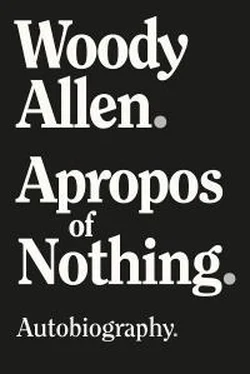
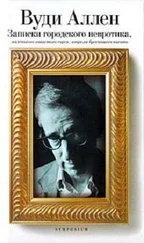
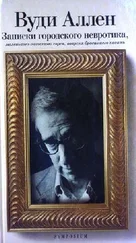
![Вуди Аллен - Парящая лампочка [=Свет плавучего маяка]](/books/94079/vudi-allen-paryachaya-lampochka-svet-plavuchego-mayaka-thumb.webp)
